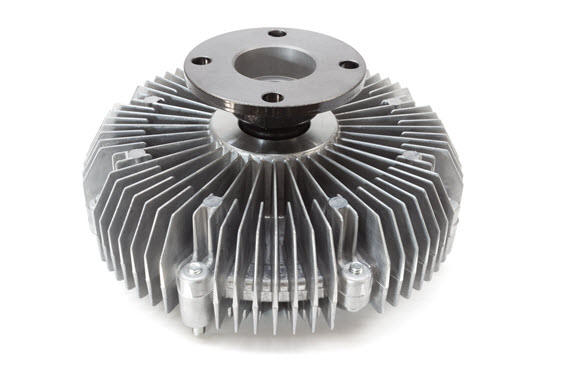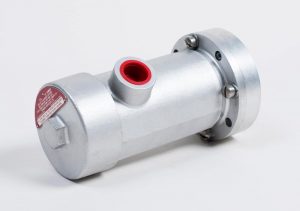Just How Aluminum Foundry Adds To Ingenious Solutions in Metal Construction
Aluminum foundries greatly affect the landscape of metal manufacture. They embrace advanced spreading methods that boost precision and design versatility. This capacity permits the production of resilient and light-weight parts that deal with diverse industry demands. Moreover, the integration of automation and sustainable techniques sets a standard for efficiency. As these shops evolve, they elevate questions regarding the future of production and the role of advancement in shaping the market.
The Duty of Aluminum Foundries in Modern Manufacturing
Aluminum factories play an essential function in modern-day manufacturing, contributing significantly to numerous industries, including auto, aerospace, and consumer goods. These facilities concentrate on the melting and spreading of aluminum, transforming resources right into high-quality components that satisfy rigid sector standards. The lightweight yet strong properties of Aluminum make it an optimal option for suppliers intending to boost efficiency while reducing weight, specifically in the automobile field, where gas performance is vital.
Additionally, Aluminum factories make use of ingenious procedures to create complicated forms and designs that cater to particular market demands. By leveraging sophisticated technologies such as computer-aided style and simulation, these foundries can enhance their manufacturing procedures and boost product application. This not only boosts the quality of the end products however also reduces waste, adding to even more lasting manufacturing techniques. Inevitably, the payments of Aluminum shops are crucial for driving innovation and performance across several industries.
Advanced Spreading Techniques Changing Steel Fabrication
Advanced casting methods are revolutionizing the area of metal construction, specifically via precision spreading approaches that enhance accuracy and lower waste. Cutting-edge alloy advancements are additionally playing a crucial role, enabling tailored residential or commercial properties and improved performance in various applications. With each other, these developments are setting new requirements in performance and top quality within Aluminum shops.
Precision Casting Approaches
As the need for high-quality parts in various industries remains to increase, accuracy spreading approaches have become a transformative force in steel fabrication. These techniques, including financial investment spreading, shed foam casting, and pass away spreading, enable elaborate geometries and tight resistances that traditional methods typically struggle to attain. By utilizing innovative products and innovations, accuracy spreading decreases waste and boosts effectiveness, enabling makers to create intricate get rid of minimized preparations. Furthermore, these techniques provide superior surface finishes and mechanical residential properties, making them ideal for industries such as aerospace, automotive, and clinical tools. As suppliers progressively take on precision spreading, the capability to meet particular style requirements while maintaining cost-effectiveness becomes an essential benefit in today's open market.
Cutting-edge Alloy Developments
Cutting-edge alloy advancements are reshaping the landscape of metal fabrication, especially within the domain name of precision casting. Developments in material scientific research have actually caused the development of specialized Aluminum alloys that improve sturdiness, resistance, and strength to rust. These novel alloys enable shops to produce complex parts with improved mechanical residential properties, accommodating varied sectors such as aerospace, auto, and electronic devices. The consolidation of sophisticated spreading methods, including die spreading and sand casting, more enhances making use of these products, enabling intricate geometries and reduced waste. Consequently, manufacturers are better geared up to meet rigorous performance requirements while lessening environmental effect. Ultimately, these ingenious alloys are leading the means for a new period of performance and sustainability in metal construction.
Light-weight and Sturdy: The Benefits of Aluminum Components
Aluminum parts offer substantial benefits in numerous applications due to their light-weight nature and toughness. This combination adds to boosted fuel performance, particularly in the aerospace and automotive markets. In addition, aluminum's fundamental deterioration resistance further prolongs the life-span of products, making it a favored selection in many metal fabrication procedures.
Boosted Fuel Efficiency
While standard products have actually long been the standard in various markets, the shift in the direction of Aluminum parts is transforming the landscape of steel manufacture, specifically in relation to enhanced fuel effectiveness. Aluminum's lightweight nature significantly lowers the general weight of cars and equipment, permitting improved performance and reduced energy consumption. This decrease in weight translates straight to lower gas usage, making Aluminum an appealing option for makers intending to satisfy rigid environmental guidelines. Additionally, light weight aluminum's durability warranties that components preserve their stability gradually, adding to lasting effectiveness. As sectors progressively focus on sustainability, the adoption of Aluminum elements comes to be a tactical selection, straightening operational objectives with ecological obligation while boosting gas efficiency in various applications.
Corrosion Resistance Conveniences
Among the standout functions of Aluminum components is their extraordinary corrosion resistance, which greatly boosts the durability and reliability of numerous applications. This property is specifically beneficial in harsh settings, such as marine and commercial setups, where exposure to dampness and chemicals can result in considerable deterioration in other steels. Unlike steel, Aluminum naturally creates a protective oxide layer that works as a barrier versus environmental components, reducing the threat of rust and deterioration. Therefore, Aluminum parts require much less upkeep and have a longer life span, making them a cost-effective selection for producers. This integral sturdiness not just contributes to the general performance of products however also supports sustainability efforts by decreasing the need for frequent substitutes.
Technologies in Layout and Design Through Aluminum Foundries
As advancements in Aluminum Foundry technology remain to improve the landscape of metal fabrication, innovative design and engineering solutions are emerging to satisfy the needs of varied industries. The adaptability of Aluminum permits for intricate designs that were previously unattainable with typical products. Foundries are leveraging computer-aided style (CAD) software program and simulation devices to optimize the design process, allowing designers to develop light-weight yet robust elements tailored to certain applications.
Moreover, the capability to include advanced alloying strategies permits the customization of Aluminum homes, improving toughness and resilience. This versatility fosters creativity in product growth, permitting business to explore new shapes and structures that improve functionality while reducing weight. Joint initiatives between shops and developers assist in rapid prototyping, leading to much shorter job timelines and enhanced overall performance. These technologies not just enhance item efficiency however also drive sustainability by decreasing material waste during the manufacture process.
Enhancing Efficiency With State-Of-The-Art Modern Technology
Improvements in cutting edge technology are revolutionizing the performance of Aluminum factories, improving procedures from style to production. Automation plays a crucial role, with robotic systems improving the rate and accuracy of tasks such as molding, pouring, and completing. These automated options reduce human mistake and decrease labor prices, while likewise raising outcome consistency.
Additionally, the integration of advanced software for computer-aided design (CAD) and simulation permits fast prototyping and testing, quickening the shift from idea to production. Factories are making use of real-time data analytics to check operations, making sure peak efficiency and reducing downtime.
3D printing modern technology is being embraced for developing intricate molds and elements, minimizing product waste and lead times. The mix of these advanced modern technologies not just boosts productivity however additionally boosts the top quality of Aluminum products, positioning shops read more at the center of innovation in metal construction.
Sustainable Practices in Aluminum Foundries
An expanding variety of Aluminum shops are taking on lasting techniques to reduce their environmental impact and promote resource efficiency. Aluminum Foundry. These shops are significantly applying reusing programs, where scrap Aluminum is accumulated and recycled, substantially decreasing waste. In addition, energy-efficient modern technologies, such as electrical heating systems and advanced insulation materials, are being utilized to lower power intake during the melting process
Water preservation techniques are likewise obtaining traction, with lots of shops recycling water in cooling systems to reduce general use. Additionally, the fostering of environmentally friendly layers and additives lessens unsafe exhausts without jeopardizing product top quality.
Future Trends in Aluminum Casting and Metalworking
Significantly, the future of Aluminum casting and metalworking is being formed by technical developments and advancing market standards. Innovations in automation and robotics are improving procedures, improving accuracy, and reducing labor prices. The adoption of additive manufacturing strategies, such as 3D printing, is transforming standard casting approaches, enabling for intricate geometries and minimized material waste.
The assimilation of artificial intelligence and information analytics is enabling real-time tracking and anticipating maintenance, which enhances manufacturing performance. Sustainability remains a core emphasis, with firms purchasing environment-friendly techniques, including the recycling of Aluminum scrap and using eco-friendly energy sources in manufacturing.
As the need for light-weight, durable materials in different sectors increases, Aluminum foundries need to adjust by developing ingenious alloys and boosting casting strategies. These patterns collectively indicate a future where Aluminum casting and metalworking are extra reliable, sustainable, and responsive to market needs.

Often Asked Concerns
What Kinds of Aluminum Alloys Are Generally Made Use Of in Shops?
Generally made use of Aluminum alloys in shops consist of 2xxx collection (copper), 3xxx series (manganese), 4xxx series (silicon), 5xxx series (magnesium), and 6xxx series (magnesium and silicon), each offering distinct buildings suitable for various applications.
How Does Aluminum Casting Contrast to Various Other Steel Manufacture Approaches?
Aluminum casting offers advantages such as reduced manufacturing prices and complex forms contrasted to standard construction methods. It gives exceptional dimensional accuracy and surface coating, making it a favored choice for several markets over alternatives like machining or welding.
What Safety Actions Are Carried Out in Aluminum Foundries?
Aluminum foundries apply different precaution, including personal safety equipment, air flow systems, regular safety and security training, threat evaluations, and emergency situation procedures to protect workers from risks related to molten steel, heat, and possible chemical exposure. Aluminum Castings.
Exactly How Can Firms Discover Dependable Aluminum Foundry Allies?
Business can recognize dependable Aluminum Foundry companions by reviewing industry track record, assessing client testimonies, evaluating quality qualifications, thinking about manufacturing abilities, and conducting website visits to ensure alignment with their particular requirements and requirements.

What Is the Common Lead Time for Aluminum Spreading Projects?
The typical lead time for Aluminum spreading tasks varies from two to eight weeks, depending on factors such as design intricacy, manufacturing quantity, and the factory's capability to meet specific task needs and timelines.
Aluminum shops play an important function in contemporary manufacturing, adding significantly to different industries, consisting of auto, aerospace, and customer goods. As advancements in Aluminum Foundry modern technology proceed to reshape the landscape of steel fabrication, cutting-edge design and design options are arising to meet the needs of diverse industries. Innovations in modern innovation are revolutionizing the performance of Aluminum factories, streamlining procedures from style to manufacturing (Aluminum Foundry). A growing number of Aluminum shops are adopting lasting methods to lower their environmental influence and promote resource efficiency. As the need for lightweight, sturdy materials in numerous industries boosts, Aluminum foundries need to adapt by developing ingenious alloys and boosting casting strategies